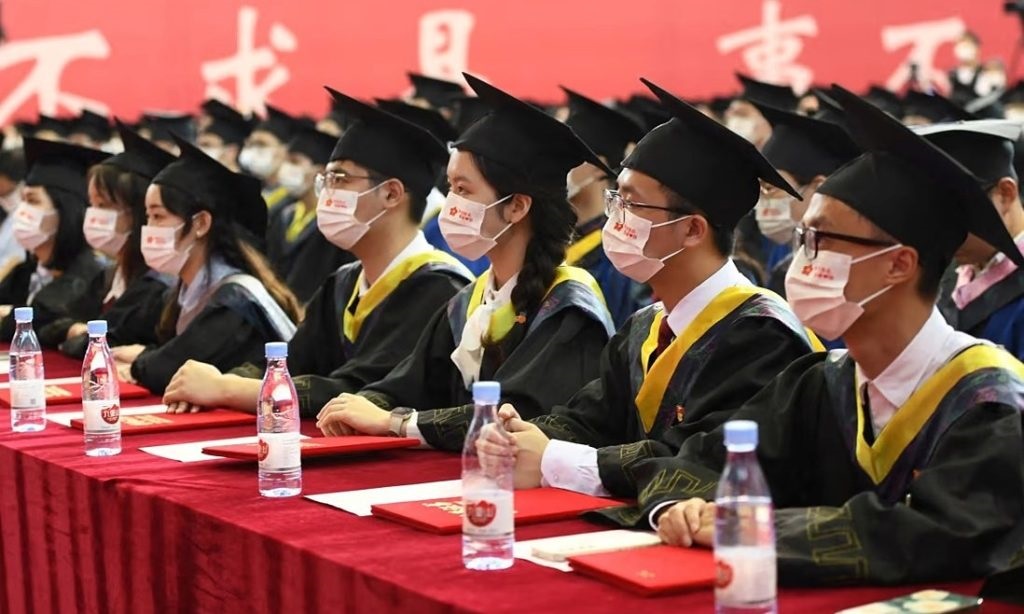China Q2 growth disappoints, youth unemployment hits record 21.3%

BEIJING – China’s economy grew at a frail pace in the second quarter as demand weakens at home and abroad, with post-Covid-19 momentum faltering rapidly and raising pressure on policymakers to deliver more stimulus to shore up activity.
Unemployment among Chinese youth jumped to a record 21.3 per cent in June, data from the National Bureau of Statistics (NBS) also showed.
Overall urban unemployment remained at 5.2 per cent, the NBS said in a statement.
The Chinese authorities face a daunting task in trying to keep the economic recovery on track and putting a lid on unemployment, as any aggressive stimulus could fuel debt risks and structural distortions.
On a year-on-year basis, gross domestic product (GDP) expanded 6.3 per cent in the second quarter, accelerating from 4.5 per cent in the first three months of the year, but the rate was below the forecast for growth of 7.3 per cent.
The annual pace was the quickest since the second quarter of 2021, but the reading was heavily skewed by economic pains caused by stringent Covid-19 lockdowns in Shanghai and other major Chinese cities in 2022.
“The data suggests that China’s post-Covid boom is clearly over,” said Ms Carol Kong, economist at Commonwealth Bank of Australia in Sydney.
“The higher-frequency indicators are up from May’s numbers, but still paint a picture of a bleak and faltering recovery and at the same time youth unemployment is hitting record highs.”
Indeed, recent data showed a rapidly faltering post-Covid-19 recovery as exports fell the most in three years owing to cooling demand at home and abroad, while a prolonged downturn in the key property market has sapped confidence. The weak overall momentum has raised expectations that policymakers will need to do more to shore up the world’s second-biggest economy.
The authorities are likely to roll out more stimulus steps, including fiscal spending to fund big-ticket infrastructure projects, more support for consumers and private companies, and some property policy easing, policy insiders and economists said. But analysts say a quick turnaround is unlikely.
All eyes are on an expected Politburo meeting later in July, when top leaders could chart the policy course for the rest of the year.
Urgent policy support?
While China is seen to be on track to hit its modest 2023 growth target of around 5 per cent, some analysts say there are risks of the goal being missed.
“It was quite a disappointing number at just 6.3 per cent, so clearly the momentum is slowing down,” said Mr Alvin Tan, head of Asia forex strategy at RBC Capital Markets in Singapore.
“At this pace of deceleration, there’s now actually a risk that the growth target may not be achieved – this 5 per cent may not be achieved if the economy continues to decelerate at this pace. So I think this does raise greater urgency for more policy support soon.”
Most analysts say policymakers are likely to dole out modest supportive measures instead of embracing any aggressive stimulus because of limited room and worries of growing debt risks.
However, a deeper slowdown could stoke more job losses and fuel deflationary risks, further undermining private-sector confidence, they said.
A senior central bank official said on Friday that the bank will use policy tools such as the reserve requirement ratio and medium-term lending facility to weather economic challenges.
In June, the central bank cut its benchmark lending rates by a modest 10 basis points.
For June alone, China’s retail sales grew 3.1 per cent, slowing sharply from a 12.7 per cent jump in May, the data showed. Analysts had expected growth of 3.2 per cent.
Industrial output growth unexpectedly quickened to 4.4 per cent in June from 3.5 per cent in May, but demand remains lukewarm amid the bumpy economic recovery.
Some economists have blamed the “scarring effects” caused by years of strict Covid-19 measures and regulatory curbs on the property and technology sectors – despite recent official efforts to reverse some curbs to support the economy.
With uncertainty running high, cautious households and private businesses are building up their savings and paying off their debts rather than making new purchases or investments.
—From The Strait Times, July 17, 2023
https://www.straitstimes.com/business/china-q2-gdp-disappoints-youth-unemployment-hits-record-213
-
Book Shelf
-
 Book Review
DESTINY OF A DYSFUNCTIONAL NUCLEAR STATE
Book Review
DESTINY OF A DYSFUNCTIONAL NUCLEAR STATE
- Book ReviewChina FO Presser Where is the fountainhead of jihad?
- Book ReviewNews Pak Syndrome bedevils Indo-Bangla ties
- Book Review Understanding Vedic Equality….: Book Review
- Book Review Buddhism Made Easy: Book Review
- Book ReviewNews Elegant Summary Of Krishnamurti’s teachings
- Book Review Review: Perspectives: The Timeless Way of Wisdom
- Book ReviewNews Rituals too a world of Rhythm
- Book Review Marx After Marxism
- Book Review John Updike’s Terrorist – a review
-
-
Recent Top Post
- Commentaries Record Pentagon spending bill and America’s hidden nuclear rearmament
-
 CommentariesNews
Ides of trade between India and Pakistan
CommentariesNews
Ides of trade between India and Pakistan
-
 Commentaries
How sustainable is the rhetoric of India-China Bhai-Bhai
Commentaries
How sustainable is the rhetoric of India-China Bhai-Bhai
-
 CommentariesTop Story
New Set of Diplomatic Strains with Canada
CommentariesTop Story
New Set of Diplomatic Strains with Canada
-
 News
Ratan Tata’s Legacy
News
Ratan Tata’s Legacy
-
 Commentaries
India’s Strategic Push on the World Stage
Commentaries
India’s Strategic Push on the World Stage
- Commentaries Veils of Resistance
- Commentaries Ensuring Safety for Women Healthcare Workers
-
 CommentariesTop Story
Palestinians at the cross- roads
CommentariesTop Story
Palestinians at the cross- roads
-
 CommentariesTop Story
While Modi professes concern for the jobless, “his government’s budget escalates class war”
CommentariesTop Story
While Modi professes concern for the jobless, “his government’s budget escalates class war”
AdSense code
















